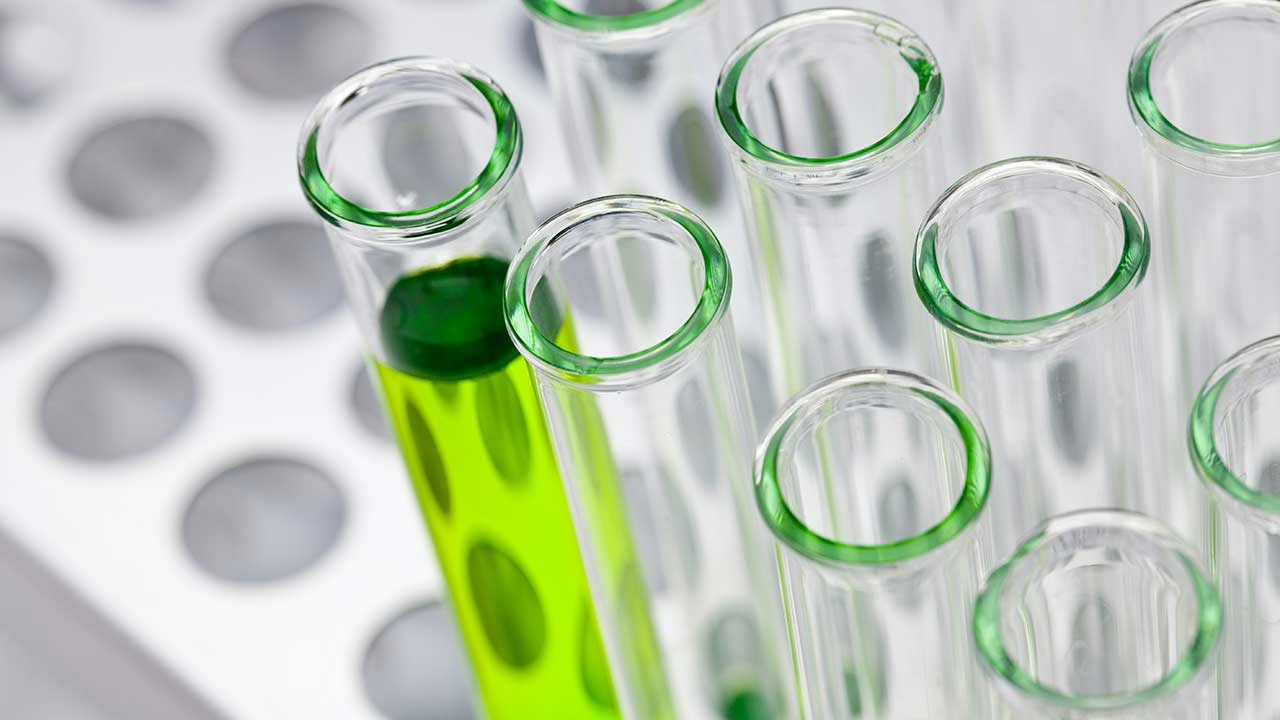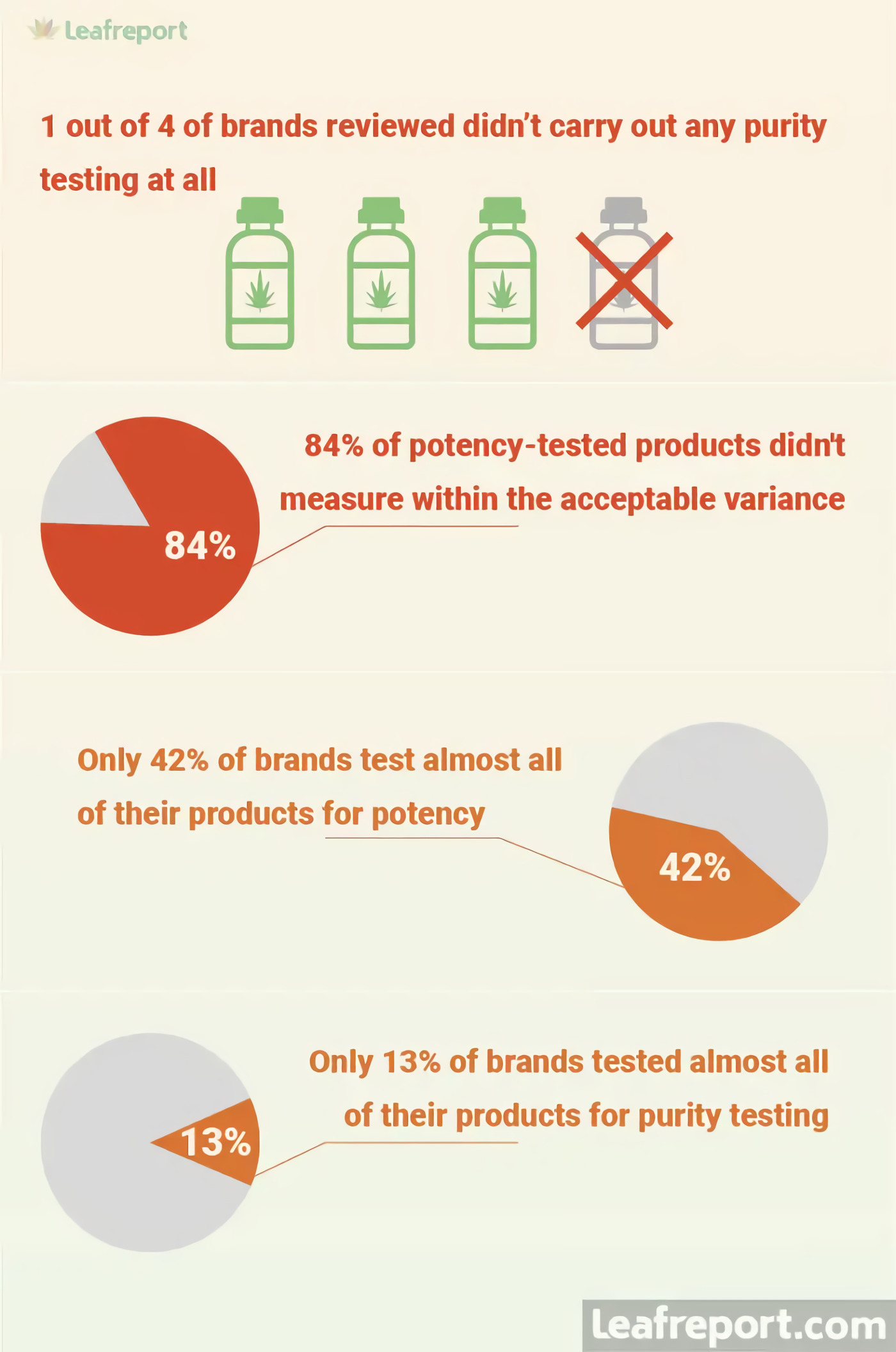CBD Watchdog Report: Which CBD Brands are Testing Their Products?
Summarize

Less than half of CBD products passed tests for pesticides, heavy metals, and microbes. In addition, the vast majority of tested products were outside the acceptable limits of the norm.
The CBD industry is one of the youngest and most legally unregulated industries. This is also shown by the recent investigation of LeafReport.com.
The study was as follows: about 3,000 CBD products were studied. The purpose of the test is to find out how many of them have been tested for purity and potency, as well as for the presence of harmful impurities.
The findings were disappointing: out of the 136 brands studied, only 13% of the participants were provided with all the necessary documentation confirming that they had passed the necessary tests. In 80% of cases, significant deviations were found beyond the acceptable values, which can deviate by only 10%. Some of the tested beverages and other products did not contain any CBD at all or had 80-90% less of it than was indicated on the label.

In 25% of cases, it was not possible to find any confirmation of the tests and checks performed. It turns out that every fourth manufacturer does not check its products properly. Lital Sharif, Head of Product at LeafRepor, calls such conclusions stunning. She also adds that if the colleagues could not find the data on the conducted laboratory tests, it means that the average user will also not be able to find them. This, according to the scientist, is a real concern. Also, during the audit, it was found out that small brands approach the issue more seriously than large manufacturers.
Here is the list of CBD brands, that tested 95% or more of their products:
As mentioned earlier, the CBD industry is the least regulated, so there are similar problems. At the moment, there is no general regulation, while only Colorado has released a list of requirements for testing CBD products, according to which all CBD food, additives, supplements, and cosmetics must be tested for microbes, pesticides, heavy metals, and THC is less than 0,3%.
However, scientists do not plan to stop at this stage, they want to conduct more checks and generally encourage brands to take this issue of testing and providing truthful data more seriously.
Share this post


0